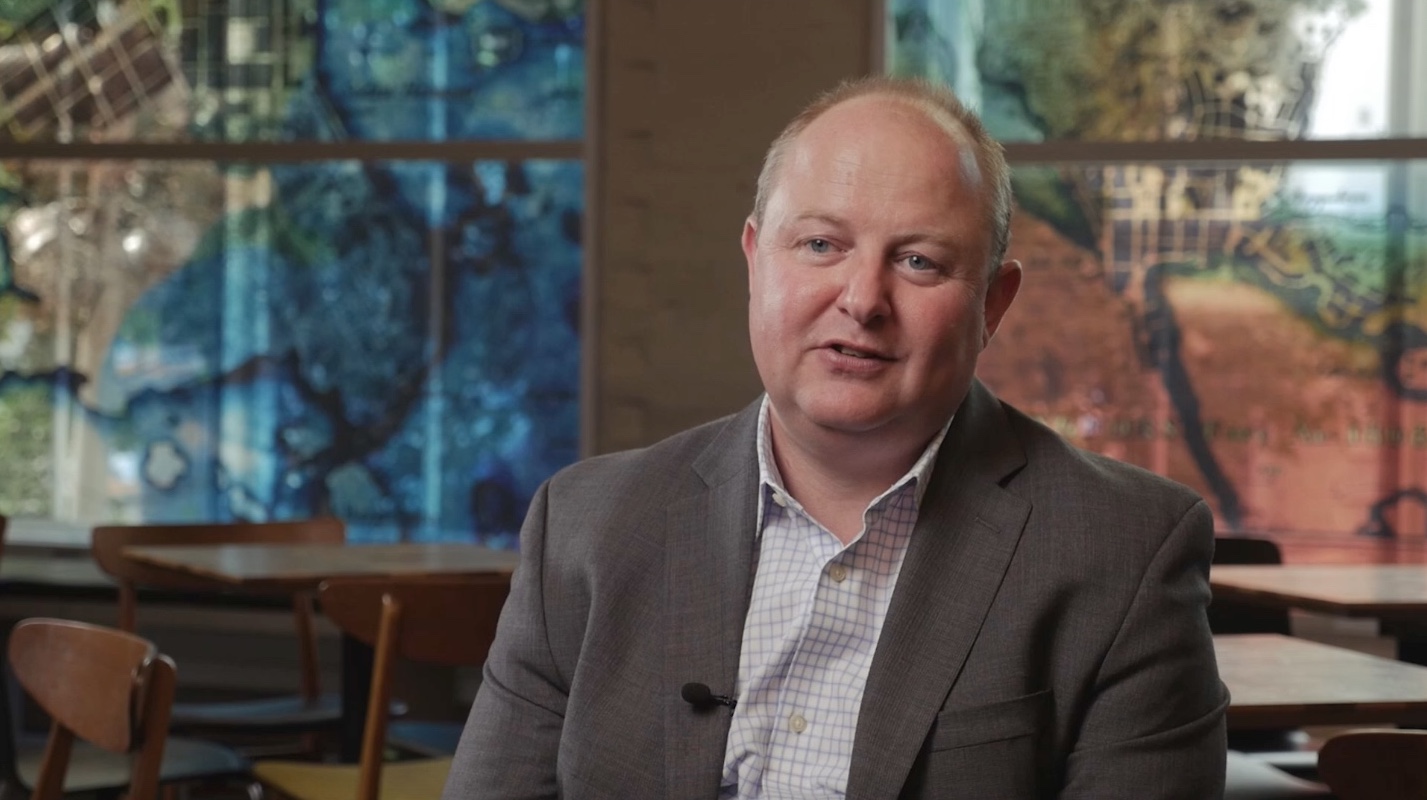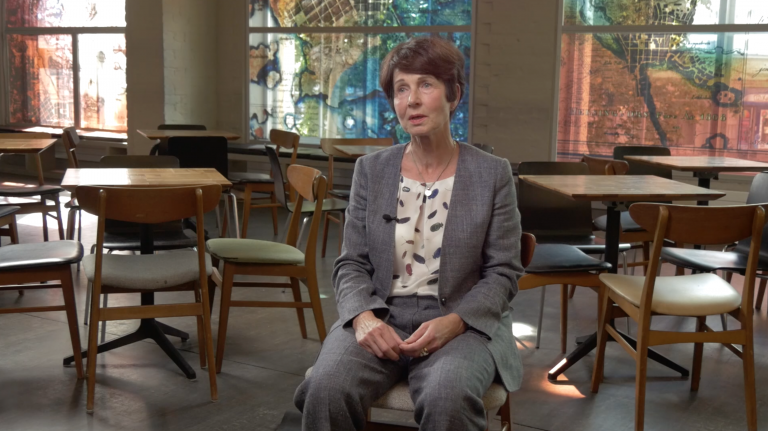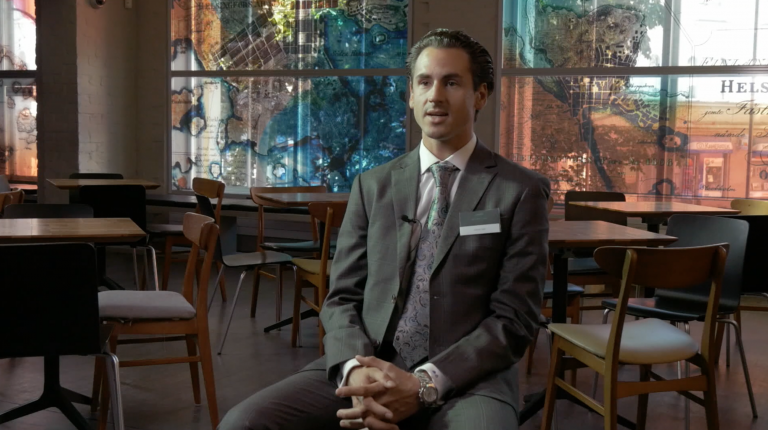High Performance Talks: Steven Lockley

High Performance Talks is an interview series focusing on improving performance through better health and wellbeing. In ten episodes, you hear fascinating stories from Formula One drivers, top executives, entrepreneurs, university professors and our very own Hintsa experts.
In episode 2 of our series, we sat down with our Sleep Specialist and Harvard Professor Steven Lockley, to discuss how sleep affects performance and how to cope with jet lag. As one of the world’s leading sleep scientists, Mr. Lockley regularly works with top athletes, business professionals as well as NASA’s astronauts to find ways for the brain and body to recover.
Could you tell us about how sleep affects human performance?
“Sleep is an absolutely key component of our wellness and ability to perform and stay awake. We don’t really know what sleep does, but we know it’s very important for recovery in general and recovery of brain function. So anything that involves brain function, like your ability to perform during the day, your ability to stay awake, is impacted by sleep.”
How can one improve the quality of their sleep?
“There are two main factors that affect how well we can sleep at night. First of all, there’s a system which measures how long you’ve been awake. So you have to have been awake for a reasonable amount of time before you can fall asleep.
The other system that controls your sleep is your circadian clock, your daily cycle. Humans have been set up to sleep at night and be active in the day. So you want to keep a very structured sleep-wake schedule, as much as possible. Try and do the same thing every day, because that will help the circadian system to make sure you fall asleep at the right time.
Other things you can control that affect your sleep, are things like light exposure. Bright light before bed or light from electronic devices will keep you alert. So you need to try and avoid bright light and have a dimmer, redder light in the evening before sleep. Also, caffeine is something which often keeps us awake, if we drink it too late in the day. So try and stop caffeine use after lunchtime.
Doing things which are relaxing in the evening can help with sleep. Many of us are very active, right up until we go to bed. We’re worrying about things when we sleep. So if you can do something to split the day from the night, which could be breathing exercises, meditation, yoga, or a hot bath, a warm non-caffeinated drink, or listening to music. Things that you find relaxing will help split the day from the night and help the brain relax and fall asleep quicker.”
How much sleep do humans really need?
“People often want to know how much sleep they need, usually so they can work out how little they can get away with. But that’s the wrong attitude with sleep! You need to have enough sleep for you and your brain to recover.
Most of us understand how well we perform on certain levels of sleep. On average it’s recommended that adults get seven or more hours a night, every night. The need, of course, is much higher in teenagers. It can be 9 or 10 hours a night, or more. And even more in smaller children.
Ideally, we should all be aiming for at least seven hours of sleep or more each night, but a key thing with sleep is to try and plan ahead. If you know that you’re going to be sleep deprived, e.g. if you have a deadline to meet, try and sleep a little more before that. Try and build a little bit of sleep reserve. Or if you have been awake for a long time, try and recover adequately and make sure you get enough sleep afterward.
Try and get the right amount of sleep every night, but also make sure that you try and bank a little bit of sleep when you can, or recover if you’ve had times when you’ve not been able to sleep.”
Do you have any tips for jet lag?
“Jet lag is caused by us shifting our sleep-wake and light-dark cycle too quickly for the body clock to keep up with. We are able to change by minutes a day. For example this time in Finland, we can react to that changing sunset and sunrise, but we can’t react to changes of an hour, two hours or three hours a day. The brain just can’t keep up. Shift work is a very similar problem. If you work at night and sleep in the day, it is equivalent of a 12-hour shift in time zone.
First of all, in order to know how to adapt, think of which direction you are traveling to. When you’re traveling westward, you need to delay the clock later. When you travel eastward, you need to advance the clock earlier.
There isn’t a one-size-fits-all solution. However, if you’re traveling westward, few days prior to departure go to bed later than normal, see light later in the evening, and start to shift your clock later. If you’re traveling eastward, go to bed earlier a few nights before you leave, see light in the morning and start to shift yourself on to the new time.
The problem comes often when you actually get to the new time zone. Sometimes you should see lights, sometimes you shouldn’t. I can’t give you a simple rule that tells you what to do every time here, but within the Hintsa program we have put together jet lag plans for F1 drivers and business executive, to help them know when exactly see light, when to avoid light, how to use caffeine, how to use mealtimes and so on.
All this is done to make sure that they can adapt as quickly as they can. If they do the plan, they can shift their inner clock by about 3h a day. Whereas it would only shift by about 1h a day, without our program.”
Finally, if you could give us one key advice for sleep, what would that be?
“My key advice for better performance is to prioritise sleep. That sounds very broad and over simplistic, but our society hasn’t valued sleep enough until very recently. We often think we have to burn the candle at both ends to achieve in life. Sleep is often the thing that gets missed if we have to work hard or work longer.
Rethinking your attitudes to sleep and prioritising sleep and making it a central part
of your own health and wellness program, is absolutely the key. You should do that, your family should do that, your colleagues should do that.
People need to change their attitudes to sleep. We can’t have this old attitude that four hours a night is good, or we can sleep when we’re dead, or sleep is for the weak. This is all wrong! We need to reverse that attitude. So my very simple piece of advice is to prioritise sleep.”

Read previous
High Performance Talks: Sari Baldauf

Read next
High Performance Talks: Adrian Sutil

Contact